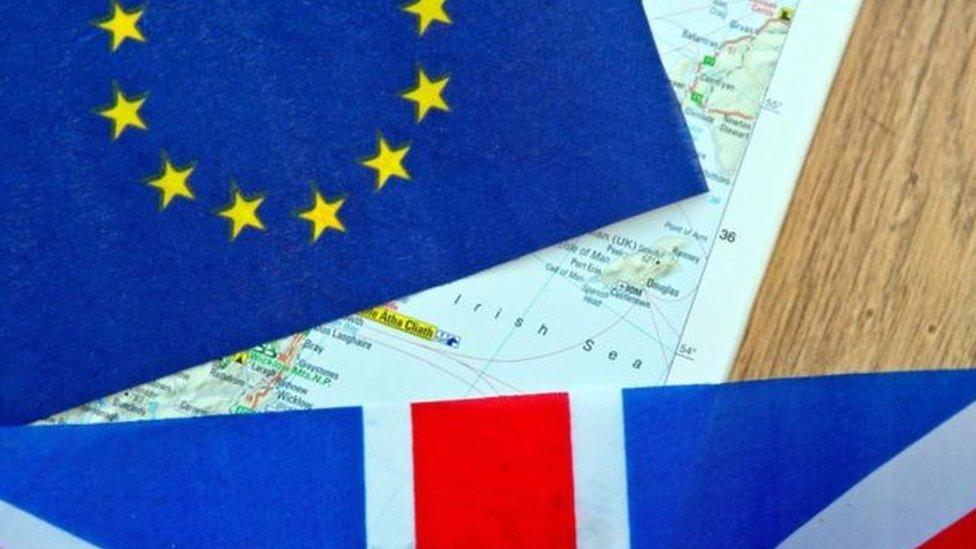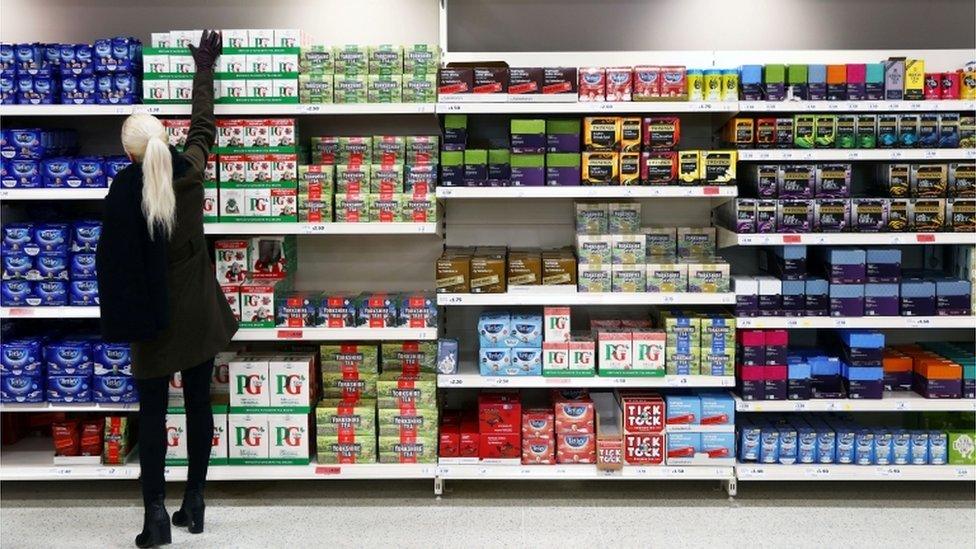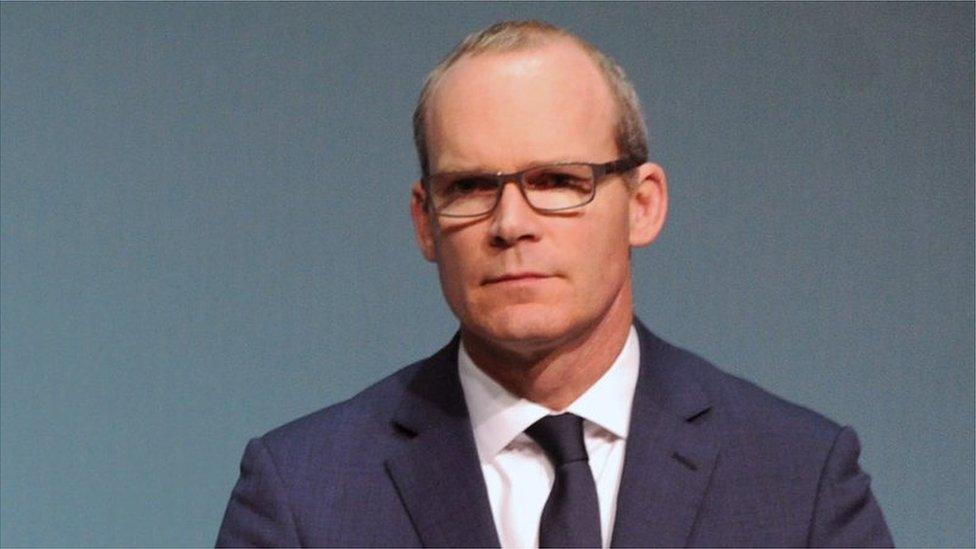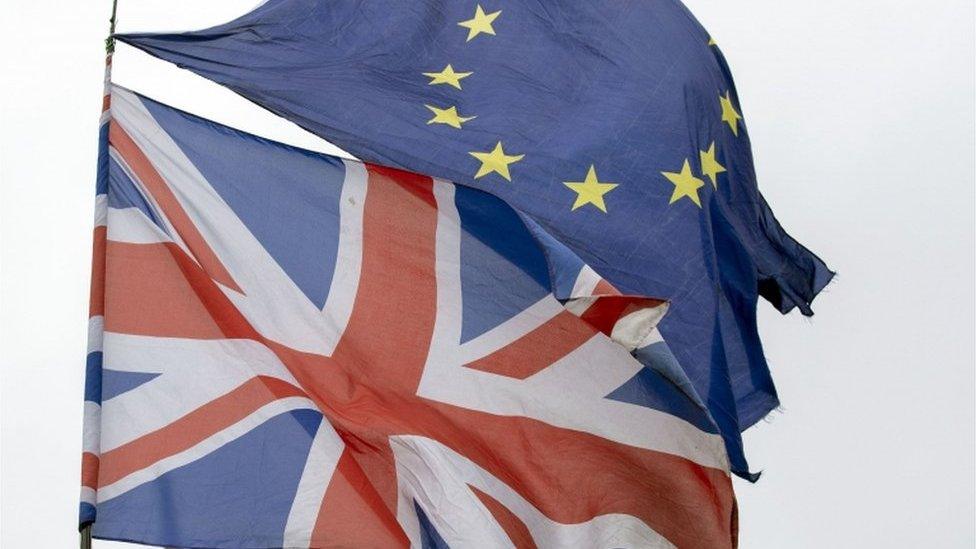Brexit: Food firms warn of Irish Sea Border impact
- Published

Major food manufacturers have warned the UK government they may stop selling some products in Northern Ireland
Major food manufacturers have warned the government they may stop selling some products in Northern Ireland as a result of the new Irish Sea border.
The Food and Drink Federation (FDF) says new checks and controls on GB-NI trade must be mitigated.
On 1 January England, Scotland and Wales will leave the EU single market for goods, but NI will not.
This will lead to some new processes on goods entering NI from Great Britain, particularly food products.

The European Union has strict rules on products of animal origin: meat, milk, fish and eggs
The European Union has strict rules on products of animal origin: meat, milk, fish and eggs.
These products must enter through a border control post where paperwork is checked and a proportion of goods are physically inspected.
All these products must also have an export health certificate, an expensive piece of administration.
The FDF says there may also be new labelling requirements which will also add costs.
'Worst-case scenario'
The FDF has written to the UK Environment Secretary George Eustice to warn: "The added cost, complexity and trade friction this inevitably creates means it will no longer be practical for many of our businesses to supply goods from Great Britain for sale in the Northern Ireland market.
"Producers are now preparing for this worst-case scenario and many are planning to stop supplying the Northern Ireland market after 1 January 2021 while they assess if it remains a viable option for their business."
The FDF acknowledges that the government is talking to the EU in an attempt to reduce the need for new checks and controls.
However, it is concerned a potential new "trusted trader" scheme will only apply to the major supermarkets and not other suppliers like wholesalers and catering firms.
It says: "Restricting access to this scheme to the largest supermarkets will mean that the only viable option for many suppliers in Great Britain to place food and drink on the Northern Ireland market will be via a limited number of large retailers.
"This will concentrate even greater powers in the hands of these dominant retailers and will place UK suppliers of food and drink, predominantly SMEs, at an even greater disadvantage in commercial negotiations."
The government has previously said that Brexit can be implemented in a way that protects the interests of the people and the economy of Northern Ireland, ensures the effective working of the UK's internal market and provides appropriate protection for the EU single market.
On Monday, Cabinet Office Minister Michael Gove said that EU and UK officials would "work intensively" to ensure progress can be made on agri-food issues.
- Published7 October 2020

- Published28 September 2020
